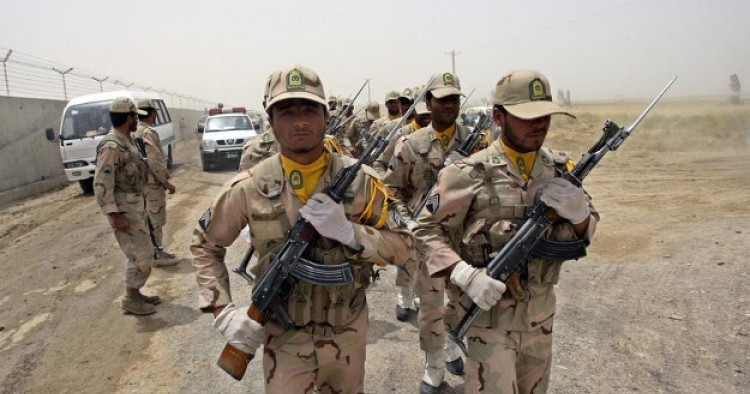Scores of Sunni Balochs demonstrated in Iran’s southeastern Sistan and Baluchestan Province on Tuesday to protest the detention of a Sunni religious leader, the Iranian media reports. Protestors gathered in front of an Islamic Revolution Guards Corps (I.R.G.C.) base in Sarbaz County, demanding the release of Mawlawi Faz-ul-Rahman Kouhi, a prominent Sunni leader in Peshamag region. Photos published in the Iranian outlets show that some young people burned tires, set blazes and blocked roads. A Special Revolutionary Court in Mashhad had summoned Kouhi for questioning on April 3, and local authorities kept the Sunni leader at a detention facility afterward.
The government has provided no reason for the Baluch leader’s detention, but media outlets speculate that it may be related to his comments about Iran’s intervention in Syria. According to Kaleme website, Kouhi has criticized the I.R.G.C. for deploying young Sunni Iranians to fight in Syria.
Comment: The Sunni community in Iran’s Sistan and Baluchestan Province has suffered state-sanctioned discrimination as well as economic and political marginalization for decades. Iran’s security agencies have ruled the Sunni region with an iron hand. The drugs-related prisoners facing execution in Iran are disproportionately from the Sunni community in the province. In late February, a top Iranian Sunni religious leader, Mavlana Abdolhamid, wrote to Supreme Leader Ali Khamenei to express his community’s concern over reports of a “secret order” issued by the country’s Judiciary to speed up the execution of Sunni death-row prisoners.
Separatist and terrorist groups have targeted Iranian security forces in the province, but majority of the Sunni population have remained peaceful and loyal to the state. And last week, the Islamic State issued a rare video threatening to attack and conquer Iran. The video clip in Persian language directly appealed to Iran’s Sunni minority to rebel against the Shiite-dominated regime in the country. Despite the Iranian government’s acts of discrimination and persecution against the country’s Sunni minority, however, the Islamic State has failed to recruit Iranian Sunnis over the past years.
The Middle East Institute (MEI) is an independent, non-partisan, non-for-profit, educational organization. It does not engage in advocacy and its scholars’ opinions are their own. MEI welcomes financial donations, but retains sole editorial control over its work and its publications reflect only the authors’ views. For a listing of MEI donors, please click here.













